15 start with C start with C
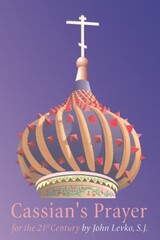
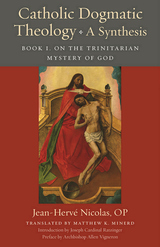
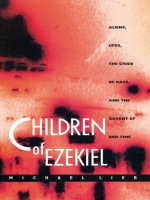
Beginning with the merkabah chariot literature of Hebrew and Gnostic mysticism, Lieb shows how religiously inspired people concerned with annihilating their heretical enemies seized on Ezekiel’s vision as revealing the technologically superior instrument of God’s righteous anger. He describes how many who seek to know the unknowable that is the power of God conceive it in technological terms—and how that power is associated with political aims and a heralding of the end of time. For Milton, Ezekiel’s chariot becomes the vehicle in which the Son of God does battle with the rebellious angels. In the modern age, it may take the form of a locomotive, tank, airplane, missile, or UFO. Technology itself is seen as a divine gift and an embodiment of God in the temporal world. As Lieb demonstrates, the impetus to produce modern technology arises not merely from the desire for profit or military might but also from religious-spiritual motives.
Including discussions of conservative evangelical Christian movements, Reagan’s ballistic shooting gallery in the sky, and the Nation of Islam’s vision of the “mother plane” as the vehicle of retribution in the war against racial oppression, Children of Ezekiel will enthrall readers who have been captivated, either through religious belief or intellectual interests, by a common thread uniting millennial religious beliefs, racial conflict, and political and militaristic aspirations.

Bernard Brady has given us a rare, delightful, and thought-provoking book—a volume that belongs on the desk or the bed-stand of anyone in search of the rich and varied dimensions of Christian love. Christians are taught that God is love and are commanded to love, their neighbors and their enemies. These truths are not controversial. What is controversial and, indeed, has been controversial throughout the history of Christianity is the meaning of this love. This book explores the tradition of Christian reflection on the meaning, and experience of love, loving, and being loved.
Many books have been written about Christian love, but no book has gathered together this kind of primary source material and covered such a wide range of perspectives, allowing the reader to engage directly with the thought and experience of some of the greatest Christian minds on the topic of love. Bernard Brady covers with remarkable clarity the breadth and depth of discussions on Christian love from the Bible to contemporary experience to create this-a survey of how Christians through the ages have understood love.
Beginning of course with the Bible, Brady examines the key writings and thinkers on the nature of Christian love: St. Augustine; mystics such as Bernard of Clairvaux, Hadewich, and Julian of Norwich; the great tradition and literature of courtly love, Thomas Aquinas, Martin Luther, Sören Kierkegaard, and others. In addition, Brady devotes chapters to several 20th century figures whose lives seemingly embodied Christian love: Mother Theresa, Martin Luther King, Jr., and Pope John Paul II. Finally, Christian Love addresses contemporary deliberations over the meaning of love with an analysis of the modern writings of Martin D'Arcy, Reinhold Niebuhr, Jules Toner, Gustavo Gutiérrez, Gene Outka, Margaret Farley, Edward Vacek, and Don Browning. In a synthesizing concluding chapter, Brady offers his own insightful and introspective understanding of the substance of Christian love, suggesting that it is an affective affirmation of another, that it is both responsive and unitive, and that it is steadfast and enduring.
As a beautiful contemplative companion to one's own spiritual understanding, or as a thoughtful and meaningful gift, Christian Love is in every sense a treasure to behold, read, and share with those you love.
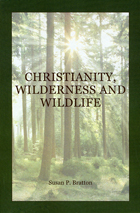
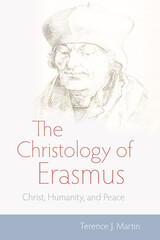
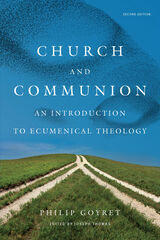
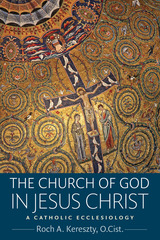
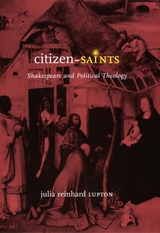
Among the many questions Julia Reinhard Lupton attempts to answer under the rubric of the citizen-saint are: how did states of emergency, acts of sovereign exception, and Messianic anticipations lead to new forms of religious and political law? What styles of universality were implied by the abject state of the pure creature, at sea in a creation abandoned by its creator? And how did circumcision operate as both a marker of ethnicity and a means of conversion and civic naturalization?
Written with clarity and grace, Citizen-Saints will be of enormous interest to students of English literature, religion, and early modern culture.
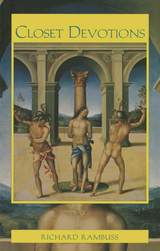
Through startling rereadings of works ranging from the devotional verse of the metaphysical poets (Donne, Herbert, Crashaw, and Traherne) to photographer Andres Serrano’s controversial “Piss Christ,” from Renaissance religious iconography to contemporary gay porn, Rambuss uncovers the highly charged erotic imagery that suffuses religious devotional art and literature. And he explores one of Christian culture’s most guarded (and literal) closets—the prayer closet itself, a privileged space where the vectors of same-sex desire can travel privately between the worshiper and his or her God.
Elegantly written and theoretically astute, Closet Devotions illuminates the ways in which sacred Christian devotion is homoeroticized, a phenomenon that until now has gone unexplored in current scholarship on religion, the body, and its passions. This book will attract readers across a wide array of disciplines, including gay and lesbian studies, literary theory and criticism, Renaissance studies, and religion.
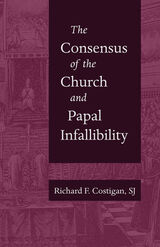
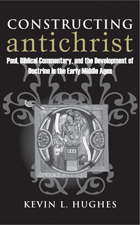
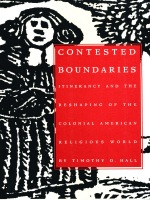
This book expands our understanding of evangelical itinerancy in the 1740s by viewing it within the context of Britain’s expanding commercial empire. As pro- and anti-revivalists tried to shape a burgeoning transatlantic consumer society, the itinerancy of the Great Awakening appears here as a forceful challenge to contemporary assumptions about the place of individuals within their social world and the role of educated leaders as regulators of communication, order, and change. The most celebrated of these itinerants was George Whitefield, an English minister who made unprecedented tours through the colonies. According to Hall, the activities of the itinerants, including Whitefield, encouraged in the colonists an openness beyond local boundaries to an expanding array of choices for belief and behavior in an increasingly mobile and pluralistic society. In the process, it forged a new model of the church and its social world.
As a response to and a source of dynamic social change, itinerancy in Hall’s powerful account provides a prism for viewing anew the worldly and otherworldly transformations of colonial society. Contested Boundaries will be of interest to students and scholars of colonial American history, religious studies, and cultural and social anthropology.
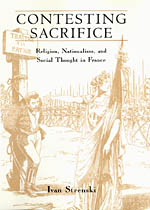
Strenski suggests that the annihilating spirituality rooted in the Catholic model of Eucharistic sacrifice persuaded the judges in the Dreyfus Case to overlook or play down his possible innocence because a scapegoat was needed to expiate the sins of France and save its army from disgrace. Strenski also suggests that the French army's strategy in World War I, French fascism, and debates over public education and civic morals during the Third Republic all owe much to Catholic theology of sacrifice and Protestant reinterpretations of it. Pointing out that every major theorist of sacrifice is French, including Bataille, Durkheim, Girard, Hubert, and Mauss, Strenski argues that we cannot fully understand their work without first taking into account the deep roots of sacrificial thought in French history.
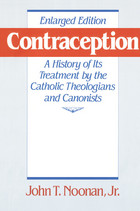
READERS
Browse our collection.
PUBLISHERS
See BiblioVault's publisher services.
STUDENT SERVICES
Files for college accessibility offices.
UChicago Accessibility Resources
home | accessibility | search | about | contact us
BiblioVault ® 2001 - 2024
The University of Chicago Press









